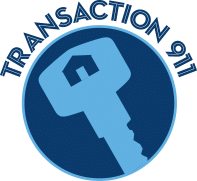
One of my great friends, who was an incredibly busy short sale listing agent at the height of the economic downturn, was irritated because his short sale taking what seemed like forever. He has closed tons of short sales, and his theory was that this specific deal shouldn’t take too long because there are fewer short sales than there were back in 2010. With fewer short sales, things should be moving more quickly.
My friend’s theory was an interesting one, but the truth is that the same kinds of issues and problems that arose in 2010 continue in the distressed property market this year.
Are You Working a Deal That Will Not Close?
Often when real estate agents do not have a lot of active prospects, they become incredibly focused on the few that they have—even though those folks are not prepared, willing, or able to get to the closing table in the near future. I’ve seen agents show fifty or more residential properties to a single investor in hopes that the investor will become enamored of just one. However, the the truth is that the investor is searching for a specific return on investment that is unrealistic in the present market. I’ve also seen agents attempt to hold together a transaction that is barely salvageable, specifically a short sale on a $100,000 property with four mortgages, a bankruptcy, and a $6000 HOA lien.
Generally, it is the lack of leads that triggers agents to focus on deals that may never close. Consider this: if you have ten deals in the pipeline and one deal fails, you still have 90% of your business. While sensitive to your clients’ needs, you are probably not too concerned about where your next dollar is coming from. You are not worried; you have only lost 10 percent of your business. On the other hand, if you have two deals in the pipeline, and one transaction falls through, you have lost 50 percent of your business. Your income is cut in half. You are not prospering. Instead, you may be having a hard time surviving financially.
Real estate professionals need to recognize that their chief role is that of lead generator. A significant amount of time every single day needs to be dedicated to lead generation, if you are to continue to be successful despite any changes to the market or the economic condition. Yes, short sales can be tough, but you wouldn’t care that much if you had tons and tons of deals in your pipeline.
Ten Tips for Successful Real Estate Lead Generation
If you want to be able to let go of those transactions or clients that are teetering on the brink, it’s a good idea to spend a little bit of time each and every day on lead generation.
Here are Ten Tips for Successful Real Estate Lead Generation that do work in any market—not just a troubled one.
- Network, Make New Friends, and Keep the Old. Go to local and regional networking activities. Socialize with friends. Get face-to-face with as many new and old friends as you possibly can. While it’s typically not a good idea to over-promote, when you are communicating with others, you develop top-of-mind awareness—even though you are only at a block party or little league game.
- Stay Disciplined and Work Your Plan. Establish a daily, weekly, and monthly plan and stick to it. Don’t just try an activity once and then complain that it isn’t producing leads. Regularly work the same plan for days, weeks, and months. It’s the consistency that will lead to results.
- Develop a Brand. Ensure that your online persona, your website, and your print material all create a logical message about what you need to offer. First impressions matter. Regardless of whether you meet someone on the street or they find you online, you want them to get a positive impression of you and your real estate services.
- Provide Items of Value. One of the most reliable ways to generate a lead is by providing an item of value. Whether it’s an ebook outlining the first time home buyer’s encounter or a free comparative market analysis, when you offer a free item of value, it’s very easy to capture a lead and investigate.
- Follow Up. Developing a consistent follow-up plan is the key to generating a lead. Some leads will convert into buyers or sellers immediately, and others may convert in six months or a year. The only way to preserve top-of-mind awareness is to follow up. Having spent so much time and effort on generating leads, it would be silly to allow them slip through your fingers.
- Create a Strong Online Presence. Over 90 percent of home buyers and home sellers start their search on the web. So, that’s where you want to be. It’s not enough just to have a website. You need to create a strong online presence through social networks, video, and blogs.
- Use Video. Visitors who view videos stay on a site approximately two minutes longer than visitors that don’t. That’s most likely why they say, “A picture is worth a thousand words.” When you use video in your online marketing strategies, you create traction.
- Be a Supreme Multi-tasker. It’s not nearly enough just to send out a direct mail newsletter monthly. You’ve got to do more. Develop a marketing calendar that includes both online and offline activities. Communicate to your social network and stay top of mind. Don’t wallow in a messy deal. Do several activities each and every day so as to get the word out that you are the real estate professional of choice.
- Ask for reviews, testimonials, and recommendations. Online review sites are all the rage. That’s how people decide which shoes to buy or what plumber to hire. Don’t be afraid to ask current and past clients to evaluate your services online. You’d be surprised at the number of leads you can obtain from people that saw positive reviews of your services online.
- Be a Local Expert. You can’t be all things to all people. It’s nearly impossible to be at the top of the google for the search terms “Los Angeles Homes for Sale” or “New York Real Estate Agent.” Data shows that it is far easier to land on page one of the search engines when you concentrate on the smaller communities or neighborhoods within the city. Also, people searching for a local specialist are typically further along in their search and an easier result in convert to a closing. So, why not begin there?
The key to success in real estate is to always work your plan. You’ve got to be continuously generating leads every single day—regardless of the market, whatever your niche. It’s the agent’s obligation to change and adjust as the market shifts. While distressed properties may be on the decline, if you work your plan you will continue to generate leads no matter the market, no matter your area of competence.


